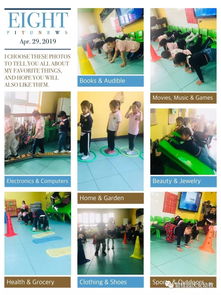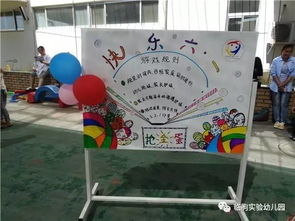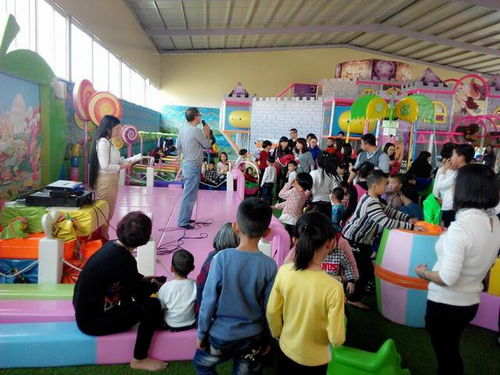Introduction
In the bustling world of modern parenting, where schedules are tight and screens are ubiquitous, the simple act of play can sometimes be overlooked. However, play is not just a pastime; it is a fundamental aspect of child development. As a育儿专家, I am here to remind parents of the importance of play and how it can be integrated into daily routines to foster creativity, social skills, and cognitive development in children.
The English term for "play" is indeed "play," but the concept encompasses much more than just a casual activity. It is a critical component of a child's growth and learning process. In this article, we will explore the benefits of play, the different types of play, and practical ways parents can encourage playful interactions with their children.
The Benefits of Play
1、Cognitive Development
Play is a powerful tool for cognitive development. It allows children to explore, experiment, and learn about the world around them. Through play, children can develop problem-solving skills, memory, and attention span. For example, building with blocks helps children understand spatial relationships and the principles of balance and stability.
2、Emotional Development
Play also plays a crucial role in emotional development. It provides a safe space for children to express their feelings and emotions. Role-playing games, for instance, can help children understand and manage their emotions better by allowing them to act out different scenarios and emotions.
3、Social Skills
Social play is essential for teaching children how to interact with others. It helps them learn to share, take turns, and cooperate. Games that involve teamwork, such as soccer or hide-and-seek, are excellent for fostering these skills.
4、Physical Development
Physical play, like running, jumping, and climbing, is vital for developing gross motor skills and coordination. It also helps children understand their bodies and how they move in space.
5、Creativity and Imagination
Unstructured play, where children are free to use their imagination, is a cornerstone for creativity. It encourages children to think outside the box and come up with innovative solutions to problems.
Types of Play

1、Physical Play
Physical play involves large muscle movements and can include activities like running, jumping, swimming, or playing sports. It is essential for building strength, endurance, and coordination.
2、Social Play
Social play involves interaction with others and can range from simple games like tag to complex team sports. It helps children develop communication skills, empathy, and the ability to work in a group.
3、Imaginative Play
Imaginative play allows children to create their own scenarios and characters. This type of play is often seen in children who engage in pretend play, such as playing house or superheroes.
4、Sensory Play
Sensory play involves the use of the senses to explore the world. This can include playing with sand, water, or paint, which helps children develop their sensory awareness and fine motor skills.
5、Constructive Play
Constructive play involves building or creating something, such as blocks, puzzles, or craft projects. It helps children develop problem-solving skills and spatial awareness.
Encouraging Playful Interactions
1、Create a Play-Friendly Environment
Set up a dedicated play area in your home with toys, books, and materials that encourage imaginative play. Ensure that the space is safe and free from hazards.
2、Limit Screen Time
While educational apps and games can be beneficial, they should not replace unstructured play. Set limits on screen time and encourage children to engage in more physical and imaginative activities.
3、Join in the Fun
Parents can enhance the play experience by participating in their child's play. This not only strengthens the parent-child bond but also models social interaction and communication skills.
4、Encourage Outdoor Play
Playing outdoors exposes children to different environments and challenges. It also promotes physical activity and interaction with nature.
5、Provide a Variety of Toys and Materials
Offering a range of toys and materials can stimulate different types of play. This includes art supplies for creative play, building blocks for constructive play, and balls or sports equipment for physical play.
6、Foster Independence in Play
Allow children to choose their activities and playmates, within safe limits. This encourages autonomy and helps children develop decision-making skills.
7、Use Play to Teach Values
Play can be an excellent opportunity to teach children about values such as fairness, kindness, and sharing. For example, during a game, discuss the importance of taking turns and being a good sport.
8、Be Patient and Flexible
Sometimes, play can be messy or noisy. It's essential to be patient and flexible, understanding that this is a natural part of the learning process.
Conclusion
Play is a vital component of a child's development, offering numerous benefits that extend beyond simple entertainment. By understanding the importance of play and integrating it into your child's daily routine, parents can help their children grow into well-rounded individuals. Remember, play is not just an activity; it is a way of learning and experiencing the world. So, embrace the power of play and watch as your child's imagination and abilities flourish.











